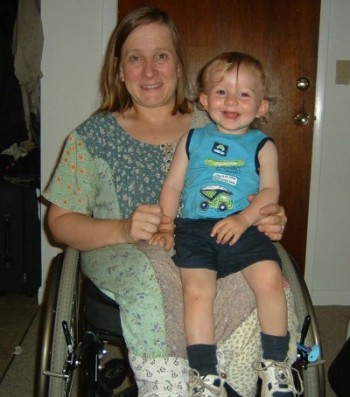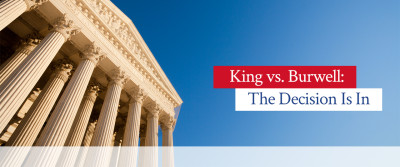How the ADA changed my life: My coworkers had to carry me up stairs to work
by Beth Finke
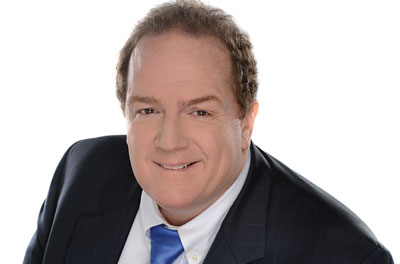 In recognition of the 28th anniversary of the Americans with Disabilities Act (ADA) we’re devoting these next two weeks to guest posts by Easterseals friends and staff members about how the 1990 passage of the ADA has changed their lives. Here’s one by Fred Maahs, Senior Director of Community Impact and Strategic Partnerships at Comcast Corporation & Vice President at the Comcast Foundation.
In recognition of the 28th anniversary of the Americans with Disabilities Act (ADA) we’re devoting these next two weeks to guest posts by Easterseals friends and staff members about how the 1990 passage of the ADA has changed their lives. Here’s one by Fred Maahs, Senior Director of Community Impact and Strategic Partnerships at Comcast Corporation & Vice President at the Comcast Foundation.
by Fred Maahs
I was 18 years old on July 26, 1990, the day that the Americans Disabilities Act was signed into law. It was a day of celebration for me, and now, looking back 25 years later, I realize how much the ADA has changed the way I’m able to face life challenges.
The passing of the ADA was a major leap forward in the movement to assure the civil rights of all people. The Americans with Disabilities Act made it illegal to discriminate on the basis of disability. Before the Act passed, it was rare to see a person with a disability out in the community. Afterward, it was clear that somebody was finally paying attention.
The ADA made such a huge impact on people with disabilities like me. As I said earlier, I was 18 when the Americans with Disabilities Act was passed. I’d been paralyzed in a swimming accident ten years before that, so I spent a decade adjusting to life with a disability during a time when people who used wheelchairs were unable to access most public buildings, public transportation, educational opportunities and employment.
One example: my first job was on the second floor of a two story building with no elevator. Each day, my coworkers would have to carry me — wheelchair and all — upstairs to work. Before the ADA, there was little support and accessibility for people with disabilities, but with the help of organizations like Easterseals, the ADA was signed and it gave persons with disabilities a voice.
Easterseals played a major role in developing and enacting the ADA, and I speak first hand when I say Easterseals offers guidance, support and inspiration to people with disabilities. Easterseals is a pioneer in opening pathways for all of us as we face new life challenges, wherever in life we may be.
![]() Today, I’m the Senior Director of Community Investment and National Partnerships at Comcast’s corporate headquarters in Philadelphia as well as the Vice President of the Comcast Foundation. The passing of the ADA has allowed me to live, learn, work and play in my community as well as reach out to others with disabilities.
Today, I’m the Senior Director of Community Investment and National Partnerships at Comcast’s corporate headquarters in Philadelphia as well as the Vice President of the Comcast Foundation. The passing of the ADA has allowed me to live, learn, work and play in my community as well as reach out to others with disabilities.
To date, the Comcast Foundation Assistive Technology Fund at Easterseals has helped an estimated 25,000 children and adults with disabilities access assistive technology. I’m proud to continue advancing the spirit of the ADA through my work with Comcast and volunteer leadership efforts with Easterseals.
There’s still a lot of work to be done with the ADA, and, just like a generation ago, we are taking action to make all things accessible for people with disabilities. Join the movement!







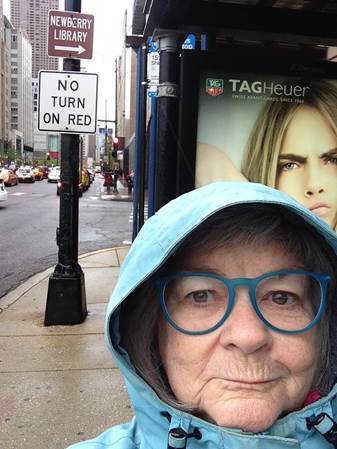
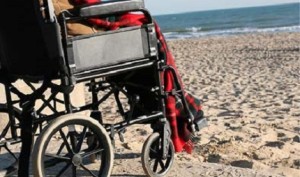 The 25th anniversary of the Americans with Disabilities Act (ADA) is just two weeks away, and we have a lot to celebrate. Thanks to this historic legislation, millions of people with disabilities:
The 25th anniversary of the Americans with Disabilities Act (ADA) is just two weeks away, and we have a lot to celebrate. Thanks to this historic legislation, millions of people with disabilities: For the past five years of my 15 year tenure with Easter Seals, I’ve had the privilege of stewarding our organizational efforts in support of Military and Veteran Caregivers. The Elizabeth Dole Foundation’s groundbreaking research,
For the past five years of my 15 year tenure with Easter Seals, I’ve had the privilege of stewarding our organizational efforts in support of Military and Veteran Caregivers. The Elizabeth Dole Foundation’s groundbreaking research, 
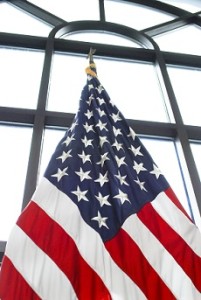 This country has a long history of men and women making sacrifices for the freedom of our country.
This country has a long history of men and women making sacrifices for the freedom of our country.
